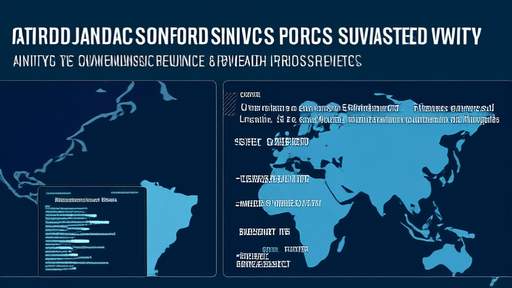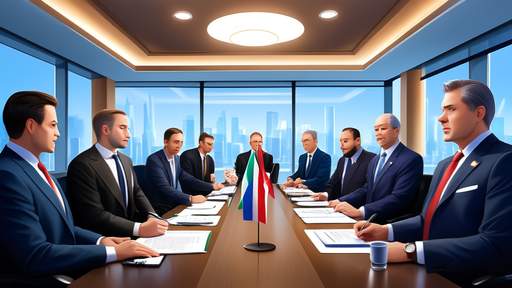Cultural Differences in ICC Arbitration: Navigating Unseen Challenges
International commercial arbitration under the auspices of the International Chamber of Commerce (ICC) has long been regarded as the gold standard for resolving cross-border disputes. Yet beneath the polished surface of procedural rules and legal principles lies a complex web of cultural undercurrents that often determine the outcome more than any clause in the contract. The silent influence of cultural differences manifests in ways that escape the black-letter law but shape every stage of arbitration - from the selection of arbitrators to the enforcement of awards.
The very concept of dispute resolution carries different cultural baggage. In many Western legal traditions, arbitration is viewed as a streamlined alternative to litigation, with an emphasis on efficiency and strict adherence to contractual terms. However, parties from collectivist societies may approach the process with entirely different expectations. The Middle Eastern concept of sulh (amicable settlement) or the Chinese preference for preserving business relationships through compromise often collides with the Western "winner-takes-all" mentality. These fundamental philosophical differences surface during mediation attempts, where some parties view settlement discussions as obligatory ritual rather than genuine negotiation.
Communication styles create another invisible barrier in ICC proceedings. Common law practitioners accustomed to aggressive cross-examination frequently misinterpret the measured responses of Asian witnesses as evasiveness. Conversely, the direct questioning style favored by American attorneys may be perceived as disrespectful in cultures where saving face governs professional interactions. The ICC's official languages - English, French and Spanish - cannot mask these deeper communication divides. Even when parties share a linguistic common ground, the cultural coding of messages often leads to profound misunderstandings that derail settlement discussions.
The composition of arbitral tribunals frequently becomes a cultural battleground. While the ICC Court goes to great lengths to ensure neutral panels, cultural affinity inevitably influences arbitrator selection. Civil law practitioners from continental Europe may unconsciously favor systematic, code-based reasoning that clashes with the pragmatic, precedent-oriented approach of their common law counterparts. Emerging economies increasingly challenge the Western dominance in arbitrator appointments, arguing that their cultural perspectives remain underrepresented in major international disputes.
Document production, that hallmark of common law procedure, generates particular cultural friction. Parties from jurisdictions with limited discovery traditions often view extensive document requests as fishing expeditions or worse - an invasion of privacy. The German concept of Betriebsgeheimnis (business secrecy) or the Japanese preference for verbal over written communication creates resistance to transparency expectations in ICC arbitration. These differences frequently lead to accusations of bad faith when cultural norms are misinterpreted as procedural obstruction.
Perhaps nowhere do cultural differences manifest more dramatically than in the presentation of evidence. The ICC Rules attempt to bridge civil and common law traditions, but cultural expectations about what constitutes proof run deep. Anglo-American arbitrators may discount witness testimony from cultures where oral tradition carries less weight than documentary evidence. Conversely, civil law practitioners sometimes dismiss the theatrical elements of common law advocacy as irrelevant to legal analysis. These unspoken biases influence credibility assessments in ways that rarely surface in the final award.
The enforcement stage reveals yet another cultural divide in the interpretation of arbitral awards. While New York Convention signatories theoretically share a commitment to enforcement, national courts apply the treaty through cultural lenses. The Chinese concept of hexie (harmony) may lead courts to scrutinize awards for outcomes that appear excessively one-sided. Islamic jurisdictions sometimes evaluate awards for Sharia compliance regardless of the governing law specified in the contract. These cultural filters create unpredictable enforcement landscapes that contradict the supposed uniformity of international arbitration.
As ICC arbitration handles increasingly complex multiparty, multicontract disputes involving parties from diverse legal traditions, cultural literacy becomes as crucial as legal expertise. The most effective arbitrators today are not just masters of procedure and substantive law, but cultural translators who can navigate the unspoken assumptions that shape each party's understanding of fairness. The ICC's recent efforts to diversify its court membership and arbitrator pools reflect growing recognition that cultural competence determines case outcomes as much as legal arguments.
The future of international arbitration may depend on whether the system can evolve beyond its Western-centric origins to genuinely accommodate multiple legal cultures. As new economic powers reshape global commerce, the ICC faces the delicate challenge of maintaining procedural uniformity while allowing sufficient flexibility for cultural differences. The arbitration community increasingly acknowledges that ignoring these cultural undercurrents risks rendering awards theoretically enforceable but practically unworkable. In this light, cultural awareness ceases to be a soft skill and becomes an essential component of due process in international dispute resolution.

By /Jun 3, 2025

By /Jun 3, 2025

By /Jun 3, 2025

By /Jun 3, 2025

By /Jun 3, 2025

By /Jun 3, 2025

By /Jun 3, 2025

By /Jun 3, 2025

By /Jun 3, 2025

By /Jun 3, 2025

By /Jun 3, 2025

By /Jun 3, 2025

By /Jun 3, 2025

By /Jun 3, 2025

By /Jun 3, 2025

By /Jun 3, 2025

By /Jun 3, 2025

By /Jun 3, 2025

By /Jun 3, 2025

By /Jun 3, 2025